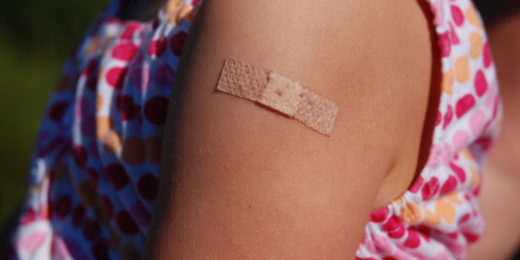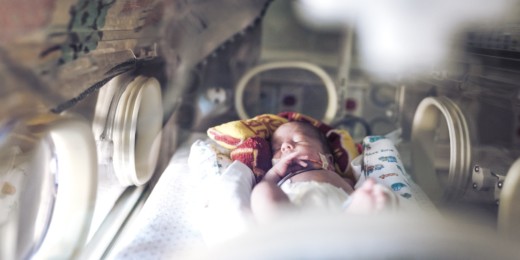Stanford Medicine pediatric infectious disease researcher describes her work in childhood infectious disease and lessons from the pandemic.
Category: Stanford Medicine Children’s Health
Learning to address anti-Black racism in the clinic
A course designed by Stanford Medicine's Presence 5 helps medical instructors teach anti-Black racism in the clinic.
Changing infant care to improve newborns’ health in India
Modifying traditional infant massages led to more weight gain and fewer illnesses among newborns in a Stanford-led community study in India.
Diversity leadership program aims to improve medicine’s culture
Pediatrics professor describes an equity, diversity and inclusion program that empowers underrepresented faculty to eliminate bias.
Premature babies’ survival rate is climbing, study says
Stanford researchers show that preterm infants survivorship have increased significantly between 2013 and 2018.
From loss comes hope: Pediatric brain tumor treatment shows promise
Research from early clinical trials of pediatric glioma patients shows that altered immune cells can fight the deadly brainstem tumor.
Stanford team finds benefits to online autism treatment
Creating online worlds tailored to kids' interests allowed Stanford therapists to use telehealth to motivate children with autism to talk.
Kids fare better with early use of diabetes technology
Providing continuous glucose monitors to kids with new type 1 diabetes improves their blood sugar levels a year later, a Stanford study showed
Stanford Medicine magazine’s top reads of 2021 offer hope
Stanford Medicine magazine's most-read articles of 2021 were about health inequity and discoveries about the brain and nervous system.
Pandemic Puzzle: Vaccinating children
A Stanford Medicine researcher discusses COVID-19 vaccination for children and why it's important for them to get the shot.
Assault during pregnancy boosts risk of poor infant health
When pregnant women are assaulted, their babies are more likely to be born prematurely and to weigh less, Stanford Health Policy research shows.
Father’s health can affect newborns — but don’t fret
Fathers with chronic illnesses may have a higher risk of having a child who is preterm, has low birth weight, or needs NICU care.
Teens vulnerable to social-media promotion of vaping
Social media posts promoting e-cigarettes appear able to make teens more willing to vape, new Stanford research has shown.
What parents should know about vaping
Pediatrics professor Bonnie Halpern-Felsher shares her research on teens' perceptions of e-cigarettes and their health risks.
Stanford study shows the power of ecofriendly packaging for cigarettes
A new Stanford study shows that people incorrectly think cigarettes with ecofriendly packaging are healthier and less harmful to the environment.
Flavored e-cigs appeal to new nicotine users, Stanford study finds
New Stanford research suggests that young people begin using nicotine products like e-cigarettes by trying fruit, mint or candy flavors.

















